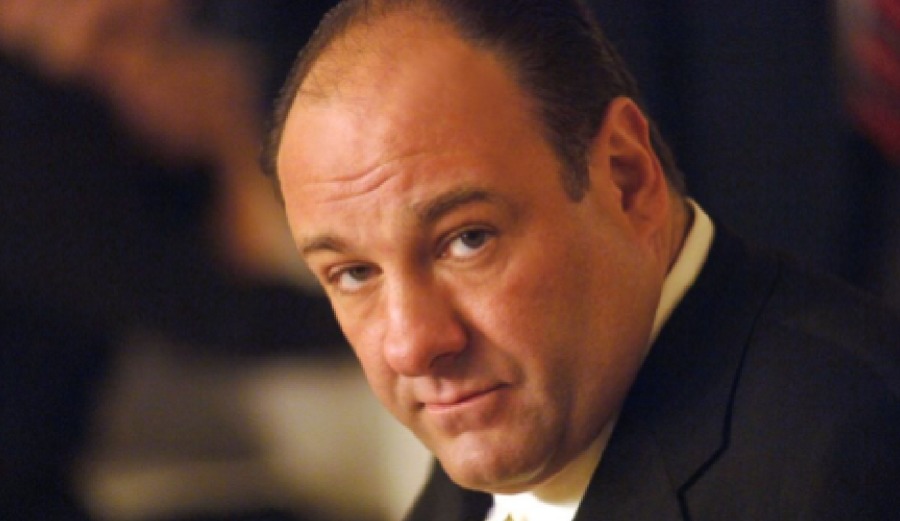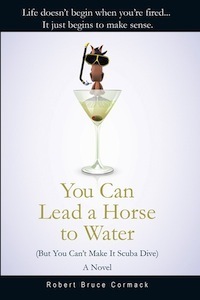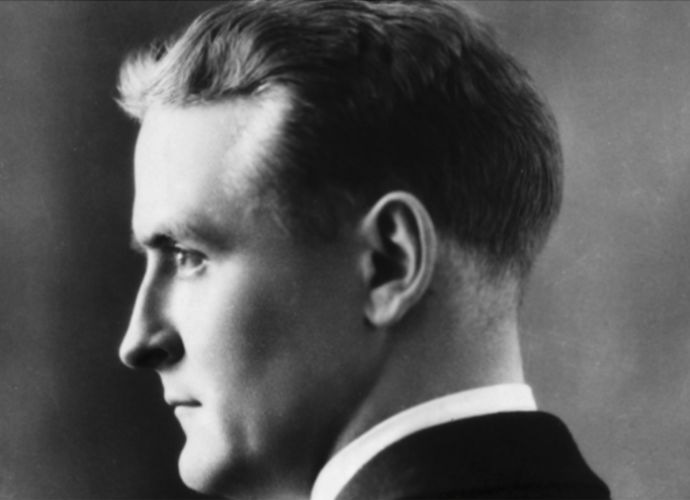In Hollywood, Anxiety Is the New Alcoholism.

This article first appeared in the National Post, December 12, 2002. Despite its age, it still resonates in terms of how well anxiety is portrayed and understood in Hollywood.
In The Sopranos series, Tony Soprano describes his anxiety attacks to his psychiatrist as “a can of ginger ale going off in my head.” When Toby McGuire asks Michael Douglas in Wonderboys why he faints, Douglas’s character describes it as “his episodes.” And in the documentary “Panic” Kim Basinger admits that she was suffering from it when she accepted her Academy Award for L.A. Confidential.
Anxiety is playing a growing role in fiction and real life, affecting everyone from imaginary Mafia bosses to movie stars and rock idols. John Candy suffered from panic attacks. So did Winston Churchill and T.E. Lawrence. The list of stars openly admitting to having it today include Cher, Hugh Grant, Sam Shepard, John Cougar Mellancamp and Donny Osmond.
In many respects, Hollywood is doing for anxiety now what it did for drug abuse and alcoholism in the fifties and sixties. Movies like Days of Wine And Roses and Lost Weekend showed the shocking slide of alcoholism where beautiful stars like Lee Remick ended up looking like street trash. Man With A Golden Arm showed how war-ravaged veterans continued their dependency on morphine after they came back home.
Life also ended up imitating art. Movie stars started checking into The Betty Ford Clinic and admitting their addictions. When they came out of the closet, the rest of the world did, too. If Liz Taylor — or Sammy Davis Jr. — could admit to being a lush, it was open season for everyone else. Interestingly, it was also the start of the star autobiography.
The difference today is how illnesses have gone from surface portrayal to in-depth analysis. The Sopranos is probably the best example. Tony’s anxiety seemed to start off as a small sub plot. Every so often, he’d take time out from offing his opponents and sit in his psychiatrist’s office, telling her that “people are really bugging him.” It made for a nice foil — psychiatrist meets psychopathic mafia moron — Jung meets Pretty Boy Floyd.
But as the episodes progressed, the rages, the irritability, Tony dropping like a stone at functions, showed a well-studied analysis of anxiety. In fact, going over the early series again, I was amazed at how the writer — or writers — were intimately familiar with this illness. Nobody describes an panic attack as “a can of ginger ale going off in my head” without having firsthand experience.
It’s also obvious that the writers did considerable research on the condition. One postulated belief is that anxiety attacks are hereditary — a notion played out in one Soprano’s episode where someone remembers Tony’s father fainting every so often. “He hit his head on a jukebox one time,” the friend said. “And he was one tough son of a bitch.”
This news is comforting to Tony — not to mention what it did for thousands of male viewers. Many men don’t seek help for anxiety because it sounds “wimpy.” A study out of Los Angeles actually showed that less than 40% of men seek any sort of therapy.
In the more macho Latin communities, most men never seek counsel or treatment. Hearing that Tony and his father — two tough guys — had anxiety must have been a real awakening. “Maybe I can see a shrink, too,” many men probably said that night. Just swear a lot. No use giving up all your dignity.
Women must have felt the same way when Kim Basinger admitted she had anxiety. Who wouldn’t feel better knowing they shared a condition with one of the most beautiful women in Hollywood?
The producers of the documentary "Panic" also made a brilliant move showing Basinger at the Academy Awards. One of the symptoms of anxiety is agoraphobia — a fear of crowds. Sometimes people can’t even go to the supermarket or get their hair cut. Here was Kim, surrounded by paparazzi, walking down the red carpet. If she could get out there, watched by billions of people, what’s a trip to the local A&P for the rest of us?
Even relative has-beens can give new hope to people suffering from anxiety. After two successful seasons in Joseph And The Amazing Technicolor Dreamcoat, Donny Osmond started getting panic attacks in crowds. “I’d been a performer my whole life,” he said, but within days, he couldn’t walk into a shopping mall. It was his wife who actually put her finger on the problem. “You try too hard to be perfect,” she said to him. “Just try being good for a change. Nobody’s going to notice.”
That advice saved Donny, and in an ironic twist, he ended up getting better reviews. “I relaxed,” he said. “I stopped trying to be the best.” Looking back over his career, he admitted that caring — or hyper-caring — had done more harm than good. “I was trying to be Michael Jackson because we both started out around the same time. But I’m no Michael Jackson. It took me twenty years to realize that. I’m just me. I can’t be that perfect.”
Perfectionism — or the need to be the best — can be at the root of anxiety. It’s the pressure we put on ourselves, thinking we can exceed our abilities by trying harder. Hugh Grant is known to have anxiety attacks after looking at his film rushes. “He never thinks he’s done a good enough job,” Elizabeth Hurley, his former girlfriend of 12 years, said.
“The world is uncontrollable,” Dr. David Burns states in his book called "Feeling Good." He explains that anxiety patients fail to realize that life is filled with variables, many of which we can’t change.
In the Taoist discipline, people are told to be more “like willows”. By bending to the world instead of being rigid, you accept life as a force that operates outside of your influence. It’s like swimming in a rip tide. Fighting against it will only exhaust you. But floating with the current will eventually bring you to shore.
Another point Dr. David Burns makes is that people with anxiety might be “too sane.” Many patients have defense mechanisms that have become acutely tuned to the negative possibilities in life. He even believes that most anxiety-ridden people are highly intelligent, and their fears are based on an almost encyclopedic knowledge of things that can go wrong. They believe that working out every negative scenario will steel them against the inevitable. It’s part of the preparation they feel they need to survive.
Tony Soprano often talks about what can go wrong to his psychiatrist, played by Lorraine Bracco. “If anybody finds out I get these — these panic attacks, I’m dead,” he says, rattling off the many scenarios he’s worked out in his mind.
His uncle could kill him — or his mother — or any number of his associates. To him, he’s just stating the obvious. “You don’t know my business,” he tells her. “You show weakness and you’re dead.” Not long after that, somebody takes a shot at him. He calls Bracco, telling her there was an attempt on his life. But he’s smiling on the phone. When she asks him how he’s doing, he says, “Great. I’ve never felt better.” It’s like he’s had the best day of his life.
This is the skill of the scriptwriter, a brilliant positioning of events that demonstrates how anxiety works. Tony discovers that he’s not afraid of being killed. He understands murder. He’s a murderer. That’s the “known” quotient. What he doesn’t know is anxiety. He can’t predict when he’ll have a panic attack. He doesn’t know how to stop it. If anxiety were a person, he’d just go and rip the asshole’s head off. But something in his head — something he can’t control — it scares him shitless.
It’s also very clever that the attempt on his life is arranged by his mother. One of his anxiety attacks occurs when he tries to get her into an old age home. “I’m paying big bucks for that place,” he says, “and she acts like it’s a fucking jail.”
Guilt is a big stress trigger with anxiety. When Lorraine Bracco tells him that his mother creates the guilt — and therefore the anxiety — he goes through the roof. “You mean she’s giving me these anxiety attacks,” he said, “and she’s trying to kill me!”
In the movie Wonderboys, Michael Douglas, playing an English professor, suffers guilt as well. His wife’s left him, he’s fooling around with the dean’s wife, and he’s holding off his editor because he can’t finish his book. To stave off anxiety and writer’s block, he forms a routine. Take a hit of pot. Drink beer. Blot out the bad stuff. Go to class.
Substance and alcohol abuse are common among people with anxiety. The Institute of Mental Health estimates that 30% of people with panic disorders abuse alcohol and 17% abuse drugs. They say this is “an unsuccessful attempt to alleviate the anguish and distress caused by their condition.”
Experts also believe that substance abuse can actually exacerbate anxiety. Douglas’s character has fainting spells — or panic attacks — often following hits of reefers. He’s too stoned to notice the connection, but the screenwriters again did their research.
Anxiety is supposedly the result of overactive brain reactions. This produces natural chemicals that respond — often unreasonably — to stress and fear. Drugs and alcohol do the same thing. What makes you feel good one minute, make you depressed or paranoid the next. It’s no coincidence that both groups — abusers and anxiety patients — are prone to depression. Whether it’s natural stimulus — or artificially generated — the brain processes to the point of exaggeration. If you’re already prone to anxiety or panic, stimulants are chemically adding to the confusion in your brain.
Michael Douglas eventually cleans up in the movie. He stops taking drugs, has a baby with the dean’s wife, and gives up his rambling opus for a simple book on his life. “I’m not having any more episodes,” he concludes in the end monologue. It’s an interesting thought. Clean up your life and your anxiety will go away. How many self-help books have promoted the same thing? Certainly in Dale Carnegie’s book, “How To Stop Worrying And Get On With Living,” he discusses life scenarios and what you need to change them.
As he explains, anxiety is often the product of “standing still.” When we act, our minds concentrate on other things. In Wonderboys, Michael Douglas stops having his “episodes” after his baby arrives. His attention is drawn to new life and so his sense of purpose changes.
Remember Donny Osmond’s wife telling him “not to be so perfect”? This is part of the technique you learn with cognitive behavioral therapy. It teaches you to understand that you — not the situation itself — causes the pressure and therefore the fear.
Kim Basinger went through a similar experience. Her husband at the time, Alec Baldwin, couldn’t understand her anxiety and agoraphobia. “You’re a performer,” he said to her. “You’re used to being in front of people.”
Yet her fear makes perfect sense. Her stress slowly built up in front of people. She wanted to please everybody — her fans, her critics, her family. She — like Donny — had to realize that she places the stress of acceptance on herself.
Acceptance — perfection — they’re all triggers to anxiety. People talk about beating it. But the truth is, anxiety isn’t really understood. Experts aren’t even sure if it’s caused by a chemical imbalance or some gene flaw. Tony Soprano summed it up best when he ended up in the hospital after fainting. A nurse comes in and tells him she has good news. “There’s nothing physically wrong with you,” she says. “You’re fine.”
“How’s that good news?” he snaps back. “If you found something wrong with me you could cut it out. Then I’d be rid of it.” That’s the frustration of the condition. We can’t just cut it out. If we could, anxiety removal would probably replace nose jobs in Hollywood. But until some scientific miracle comes along — we’ll just have to try to be a little less perfect.
Robert Cormack is a novelist, blogger and freelance copywriter. His first novel “You Can Lead a Horse to Water (But You Can’t Make It Scuba Dive)” is available online and at most major bookstores. Check out Yucca Publishing or Skyhorse Press for more details.

""
Articles from Robert Cormack
View blog
Without selling yourself short. · “We marry, have kids, do our jobs, provide food, education. Job do ...

A year later, he earned 20 times that. · “No decent career was ever founded on a public.” F. Scott F ...

This is the latest issue of Rosebud Magazine (#69), marking my twenty-year relationship with publish ...
Related professionals
You may be interested in these jobs
-
administrative assistant
Found in: Talent CA 2 C2 - 1 day ago
Goraya Professionals Ltd Surrey, CanadaEducation: Secondary (high) school graduation certificate · Experience: 1 year to less than 2 years · Tasks · Arrange and co-ordinate seminars, conferences, etc. · Supervise other workers · Train other workers · Record and prepare minutes of meetings, seminars and conferences · D ...
-
driver, truck
Found in: Talent CA 2 C2 - 3 days ago
North Rustico Home Hardware North Rustico, CanadaEducation: Secondary (high) school graduation certificate · Experience: 3 years to less than 5 years · Work site environment · Outdoors · Tasks · Load and unload goods · Operate and drive straight or articulated trucks to transport goods and materials · Perform preventive mainten ...
-

Journeyman Millwright
Found in: Talent CA C2 - 2 weeks ago
Komatsu Edmonton, CanadaKomatsu is an indispensable partner to the construction, mining, industrial and forestry industries that maximizes value for customers through innovative solutions. With a full line of products supported by our advanced IoT technologies, regional distribution channels and a globa ...



Comments
Paul Walters
7 years ago #3
Robert Cormack
7 years ago #2
Donald 🐝 Grandy PN
7 years ago #1